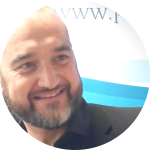World Press Freedom Day, which is marked every 3 May, finds its origins in the famous Windhoek Declaration of 1991 by African journalists on media pluralism and independence.
In the same year, UNESCO adopted a recommendation at its twenty-sixth session General Conference. It was endorsed by the UN General Assembly in 1993 and World Press Freedom Day was proclaimed.
Every year, UNESCO adopts a theme for the Day and a venue to hold the official celebrations where traditionally the UNESCO/Guillermo Cano World Press Freedom Prize is presented to the winner.
World Press Freedom Day 2016 is being held in Helsinki, Finland but this year’s winner of the prestigious prize, Ms Khadija Ismayilova from Azerbaijan, will not attend.
The investigative freelance journalist and a contributor to the Azerbaijani service of Radio Free Europe is serving a seven-and-a-half-year jail term after being found guilty of “abuse of power and tax evasion”, charges widely dismissed as an attempt to suppress independent reporting.
While the world’s recognition for the contribution of this brave journalist to press freedom is welcome, it is a matter of grave concern that the very professional independence African journalists were calling for more than 25 years ago continues to send colleagues to jail in the four corners of the globe.
Sadly, there is worse than losing personal freedom in an age when high levels of violence have claimed the lives of nearly 3,000 journalists and other media staff over the last 25 years, according to the records of the International Federation of Journalists.
The causes of the killings include dangers of covering armed conflicts and cross fire incidents but these grim figures cannot just be explained through the sheer violence of war alone. Most are the result of targeted killings of journalists in peace-time who are victims of the role of terror, designed to crush anyone who dares expose corruption, abuse of power and other criminal activity in their communities, cities and countries.
Perhaps the most startling statistic concerns the lack of any accountability for these crimes; only one out of ten killings leads to the prosecution and conviction of the killers. The entrenched impunity for these acts is the single largest contributing factor to violence in journalism.
The record levels of violence targeting media professionals is having an adverse impact on media coverage of important events, with fewer established reporters venturing into areas representing high risks to their safety. Ironically, this situation further exposes local journalists who often lack the media organisation’s support, or young freelancers facing precarious employment prospects to take on these perilous assignments with no training in safety or social protection.
“No press freedom when journalists live in fear, corruption and poverty”
The International Federation of Journalists, the world’s largest professional organisation of journalists and the first to begin publishing annual reports on journalists and media staff killed in 1990, has an unparalleled overview of the safety crisis in media.
Indeed, the Federation has over the last two decades spearheaded the campaign to promote safety in journalism through the adoption of the most comprehensive code of conduct for the safe practice of journalism, safety training and the publication of reference material for war reporting preparation. The IFJ also invested in an advanced database to monitor and record attacks on journalists.
Furthermore, it set up an international safety fund, funded by journalists and for journalists, to provide practical solidarity with those who are victims of violence and need assistance for their safety.
The Federation firmly believes that journalism is a public good and that safety in media should not be the responsibility of journalists alone. To this end, the Federation helped found within the industry partner organisations such as the International Freedom of Expression eXchange (IFEX) and the International News Safety Institute (INSI) to promote further media protection.
The recent developments on the international policy agenda offer a glimmer of hope to lift the shadow of violence which has descended on journalism around the world.
Initiatives such as the UN Action Plan for the safety of journalists and the issue of impunity, the UN Day against impunity for crimes targeting journalists which is marked on 2 November as well as the UN Security Council’s resolution 1738 (2006) and 2222 (2015) on the protection of journalists are steps in the right direction.
But more needs to be done to transform them into reality on the ground for the benefit of all who are involved in news gathering and World Press Freedom Day provides an opportunity to remind governments of their international obligations under international law.
Safety and freedom from fear are therefore of utmost importance for guaranteeing journalists’ independence and to promote pluralism, but genuine press freedom requires more than that.
As a trade union, the International Federation of Journalists defends journalists’ working conditions, including earning a decent living to combat corruption in the profession. That is another challenge to our profession which IFJ affiliates around the world will be debating on World Press Freedom Day.
It is only by addressing all these issues that we can achieve press freedom which best protects media professionals and faithfully serves the public in the interest of peace, democracy and social justice.
Indeed, the IFJ mission’s statement holds as a universal truth that “there can be no press freedom when journalists live in fear, corruption and poverty.”









